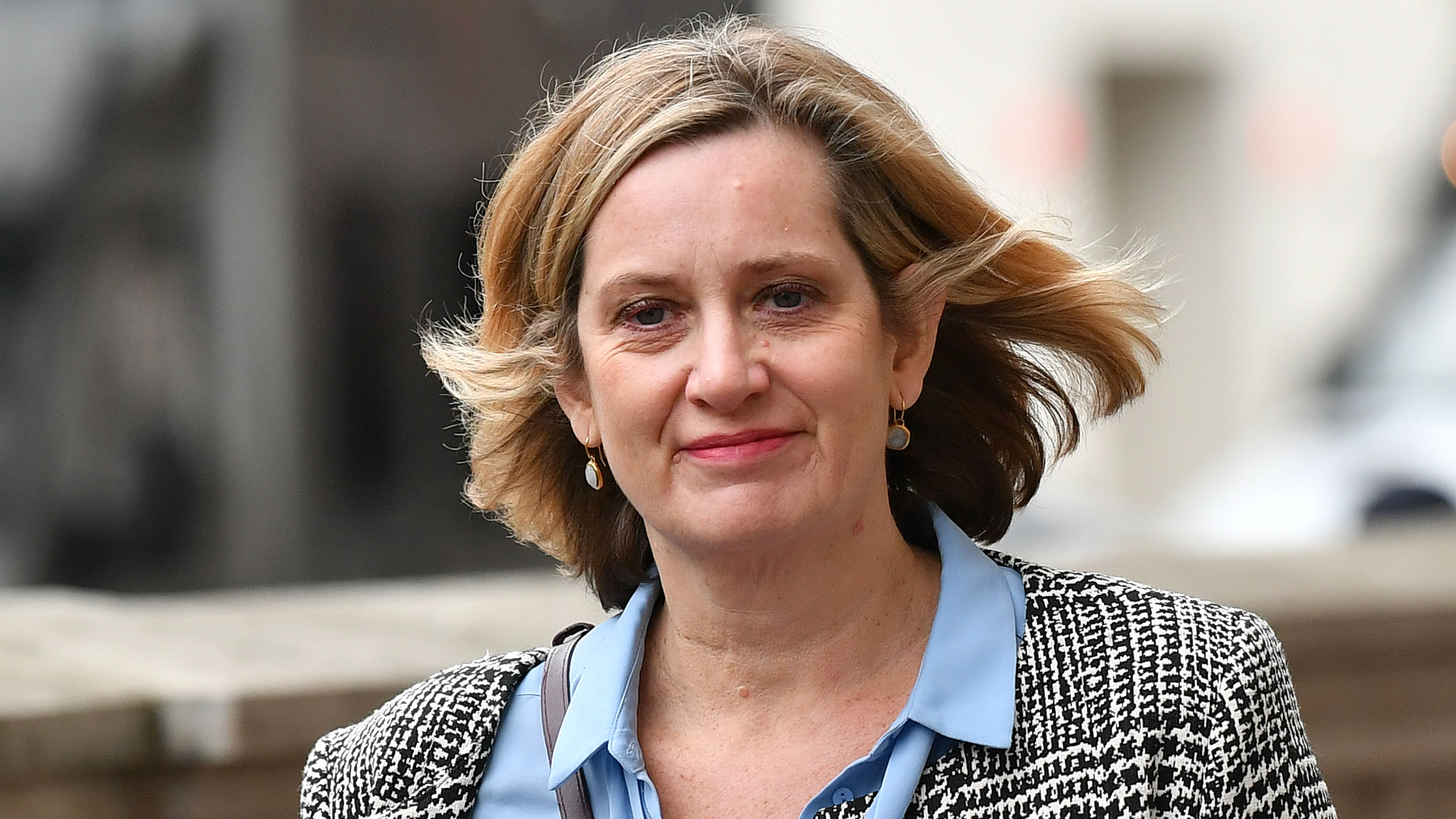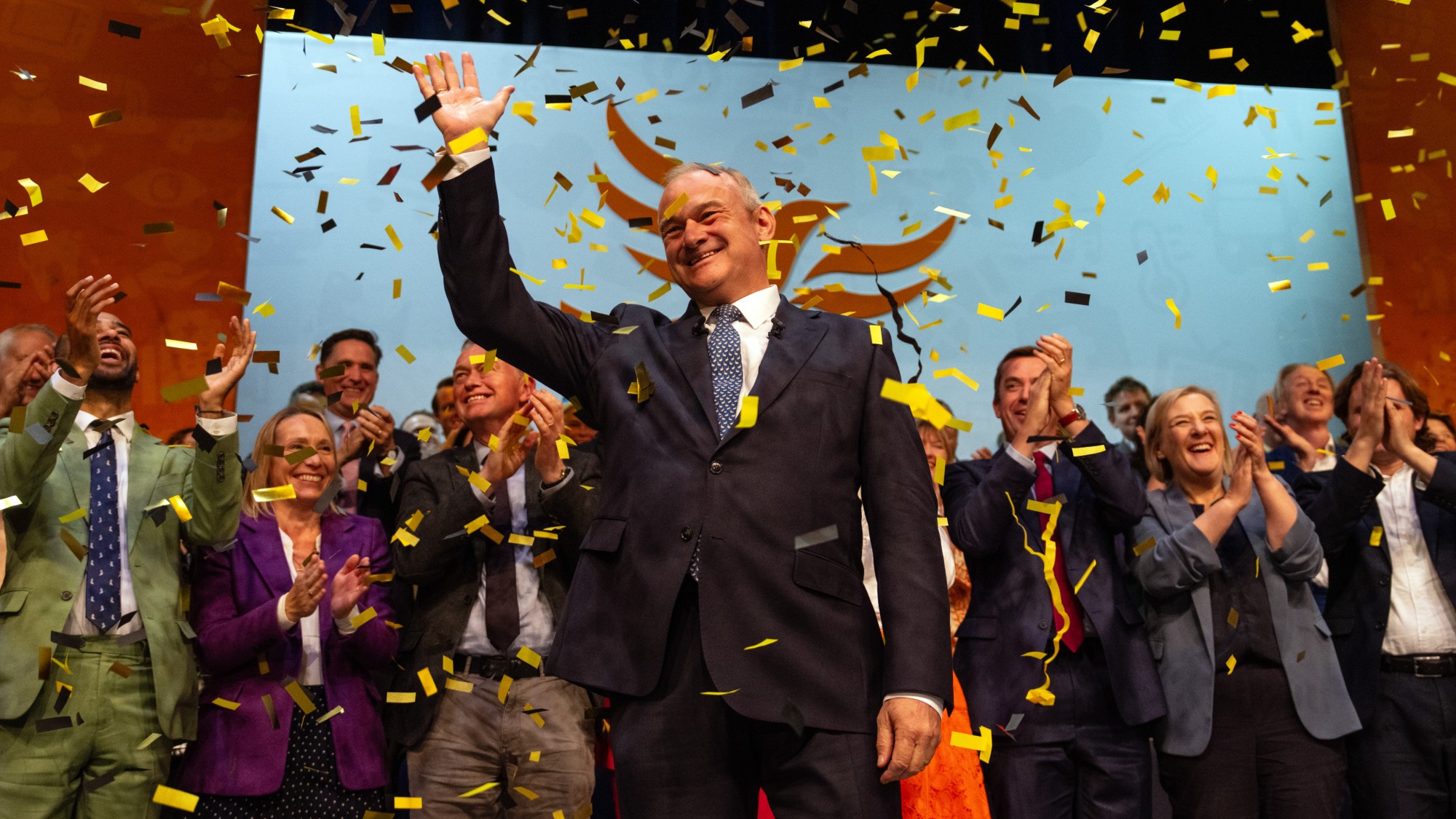Why more than 50 MPs are standing down
December election will see dozens leave the House of Commons, including some party grandees


A free daily email with the biggest news stories of the day – and the best features from TheWeek.com
You are now subscribed
Your newsletter sign-up was successful
More than 55 MPs have decided they will not stand for election on 12 December.
Compared to the 31 who declined to stand again in the last national vote in 2017, the exodus has already been called a “changing of the guard”.
The latest high-profile politician to quit is Culture Secretary Nicky Morgan, who said “the abuse for doing the job of a modern MP” was among the reasons she was leaving Parliament.
The Week
Escape your echo chamber. Get the facts behind the news, plus analysis from multiple perspectives.

Sign up for The Week's Free Newsletters
From our morning news briefing to a weekly Good News Newsletter, get the best of The Week delivered directly to your inbox.
From our morning news briefing to a weekly Good News Newsletter, get the best of The Week delivered directly to your inbox.
Others include Conservative veteren Sir Alan Duncan, who in 2002 became the first openly gay Tory MP, “Father of the House” Ken Clarke, London mayoral hopeful Rory Stewart, Theresa May’s de facto deputy David Lidington, and former home secretary Amber Rudd, who had the Tory whip removed after voting against the government on Brexit.
News of Rudd’s departure caused consternation at senior levels yesterday, after her request to have the party whip reinstated was denied.
“You did not support the approach of the prime minister and did not have confidence in him,” wrote Chief Whip Mark Spencer in his letter of response. “You have failed to provide me with assurances that you will not change your mind once more... receipt of the party whip is an honour, not a right, and as such it cannot be discarded or returned at will if it is to have any meaning.”
Rudd decided that she would not stand as an independent in her Hastings and Rye constituency, a seat she already holds very marginally, having won by only 346 votes in 2017. Despite rumours she may try to stand as an independent in London, she said a break was due. “I’m not finished with politics, I’m just not standing at this election,” she told the London Evening Standard. She had simply hoped to leave after being welcomed back into the Tory fold, she said.
A free daily email with the biggest news stories of the day – and the best features from TheWeek.com
Rudd, who once said Johnson “isn’t the man you want driving you home at the end of the evening”, suggested that Downing Street was not necessarily united in its decision to deny her reacceptance.
Whether the “No 10 source” she was referring to was Dominic Cummings is unclear. “I spoke to the Prime Minister and had a good meeting with him a few days ago,” she revealed. “I’m really confident of my position... I will be leaving the House of Commons on perfectly good terms with the Prime Minister and I want him to succeed.”
–––––––––––––––––––––––––––––––For more political analysis - and a concise, refreshing and balanced take on the week’s news agenda - try The Week magazine. Get your first six issues free–––––––––––––––––––––––––––––––
On Tuesday night, Johnson restored the whip to ten of the 21 MPs who voted for legislation that sought to block any chance of a no-deal Brexit and force him to request an extension - known as the Benn Act.
“Publicly parting company with Brexit blockers underlines that Boris Johnson is serious when he says that an intransigent Parliament has forced him into this election,” writes Douglas Carswell, who defected from the Tories to UKIP in 2014, in The Telegraph. “It also allows him to keep the mantle of being ‘Mr Brexit’, a title that one or two others might be keen to claim in the coming election contest.”
Others, such as Rudd herself, disagree, arguing that party harmony should be valued over purity of Leave orthodoxy. “I feel a sense of relief that they have been welcomed back and the party can be what it should be, representing different views on Europe as well as on everything else,” she said.
While many of the MPs standing down are discontented Remain Conservatives, others cite the toil of decades of public service as the reason for their decision.
In a letter to his local newspaper, the Bucks Herald, Aylesbury MP David Lidlington wrote: “Politics imposes a heavy cost on family and private life. That is not a complaint: people who seek elected office do so voluntarily. But I have come to the conclusion that now is the right time for me to give a higher priority in terms of my time and energy, to Helen and my family who have given unstinting support to me during more than a quarter of a century in the House of Commons.”
Former Labour leadership contender Owen Smith spoke of “political and personal reasons” in his letter to party leader Jeremy Corbyn. “I write to inform you that, for political and personal reasons, I will not be standing at the forthcoming General Election. It has been an enormous privilege to serve as a Labour MP and I am truly proud to have represented my hometown of Pontypridd over the last decade.”
The Guardian notes that “more MPs have stood down before other elections, with 90 not standing again in 2015, and 149 in 2010”.
However, the New Statesman says the reasons for their departure are different to other years. These are not just retirees and people who fear Brexit will impact on their political prospects, says the magazine, but also our “toxic culture of abuse” that is “actively driving MPs, particularly women, away from public life”.
The MPs leaving so far
Alan Duncan
Nicholas Soames
Ian C. Lucas
Alastair Burt
Nick Hurd
Nicky Morgan
Jim Cunningham
Amber Rudd
Peter Heaton-Jones
Jim Fitzpatrick
Bill Grant
Richard Benyon
John Mann
Caroline Spelman
Richard Harrington
Kate Hoey
Claire Perry
Sarah Newton
Kevin Barron
David Jones
Seema Kennedy
Louise Ellman
David Lidington
Guto Bebb
Owen Smith
David Tredinnick
Justine Greening
Paul Farrelly
Glyn Davies
Kenneth Clarke
Roberta Blackman-Woods
Hugo Swire
Nick Boles
Ronnie Campbell
Jeremy Lefroy
Oliver Letwin
Stephen Pound
Jo Johnson
Rory Stewart
Stephen Twigg
Keith Simpson
Adrian Bailey
Teresa Pearce
Mark Field
Albert Owen
Joan Ryan
Mark Prisk
Ann Clwyd
Heidi Allen
Michael Fallon
Geoffrey Robinson
Norman Lamb
Mims Davies
Gloria De Piero
Vince Cable
Helen Jones
John Bercow
William Gritten is a London-born, New York-based strategist and writer focusing on politics and international affairs.
-
 Political cartoons for February 10
Political cartoons for February 10Cartoons Tuesday's political cartoons include halftime hate, the America First Games, and Cupid's woe
-
 Why is Prince William in Saudi Arabia?
Why is Prince William in Saudi Arabia?Today’s Big Question Government requested royal visit to boost trade and ties with Middle East powerhouse, but critics balk at kingdom’s human rights record
-
 Wuthering Heights: ‘wildly fun’ reinvention of the classic novel lacks depth
Wuthering Heights: ‘wildly fun’ reinvention of the classic novel lacks depthTalking Point Emerald Fennell splits the critics with her sizzling spin on Emily Brontë’s gothic tale
-
 How long can Keir Starmer last as Labour leader?
How long can Keir Starmer last as Labour leader?Today's Big Question Pathway to a coup ‘still unclear’ even as potential challengers begin manoeuvring into position
-
 The high street: Britain’s next political battleground?
The high street: Britain’s next political battleground?In the Spotlight Mass closure of shops and influx of organised crime are fuelling voter anger, and offer an opening for Reform UK
-
 Is a Reform-Tory pact becoming more likely?
Is a Reform-Tory pact becoming more likely?Today’s Big Question Nigel Farage’s party is ahead in the polls but still falls well short of a Commons majority, while Conservatives are still losing MPs to Reform
-
 Asylum hotels: everything you need to know
Asylum hotels: everything you need to knowThe Explainer Using hotels to house asylum seekers has proved extremely unpopular. Why, and what can the government do about it?
-
 Taking the low road: why the SNP is still standing strong
Taking the low road: why the SNP is still standing strongTalking Point Party is on track for a fifth consecutive victory in May’s Holyrood election, despite controversies and plummeting support
-
 The Liberal Democrats: on the march?
The Liberal Democrats: on the march?Talking Point After winning their highest number of seats in 2024, can the Lib Dems marry ‘stunts’ with a ‘more focused electoral strategy’?
-
 Behind the ‘Boriswave’: Farage plans to scrap indefinite leave to remain
Behind the ‘Boriswave’: Farage plans to scrap indefinite leave to remainThe Explainer The problem of the post-Brexit immigration surge – and Reform’s radical solution
-
 Is Andy Burnham making a bid to replace Keir Starmer?
Is Andy Burnham making a bid to replace Keir Starmer?Today's Big Question Mayor of Manchester on manoeuvres but faces a number of obstacles before he can even run
